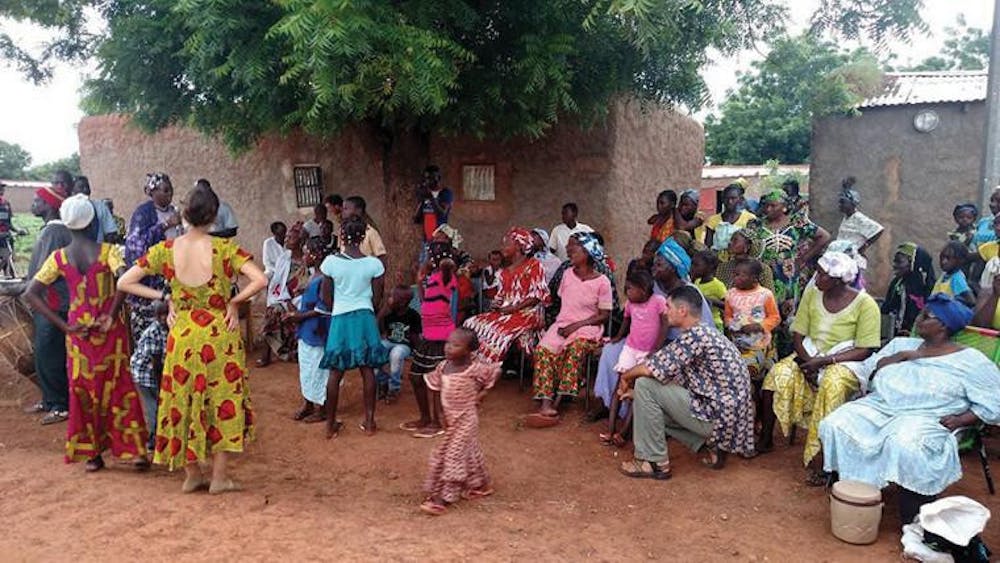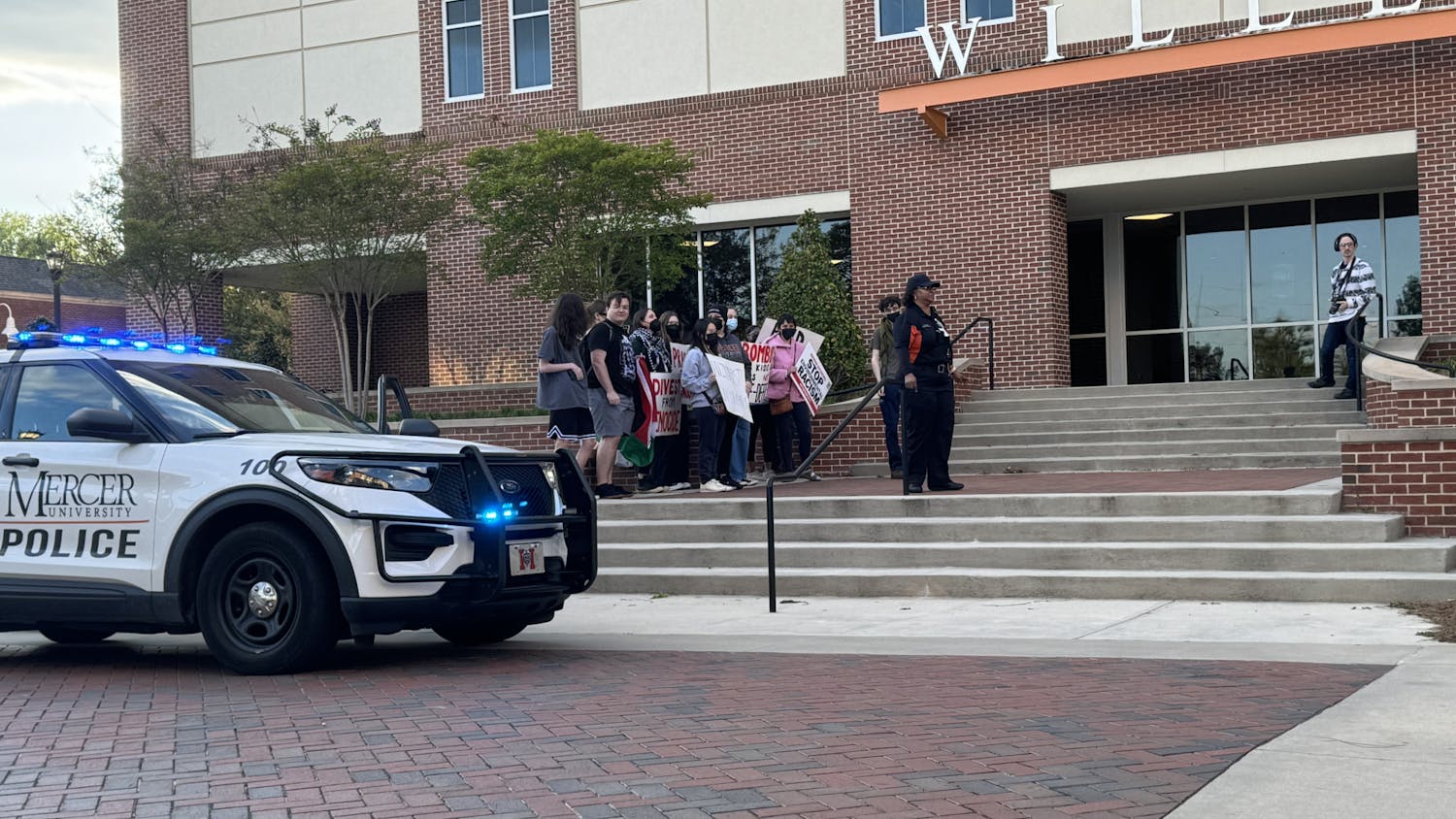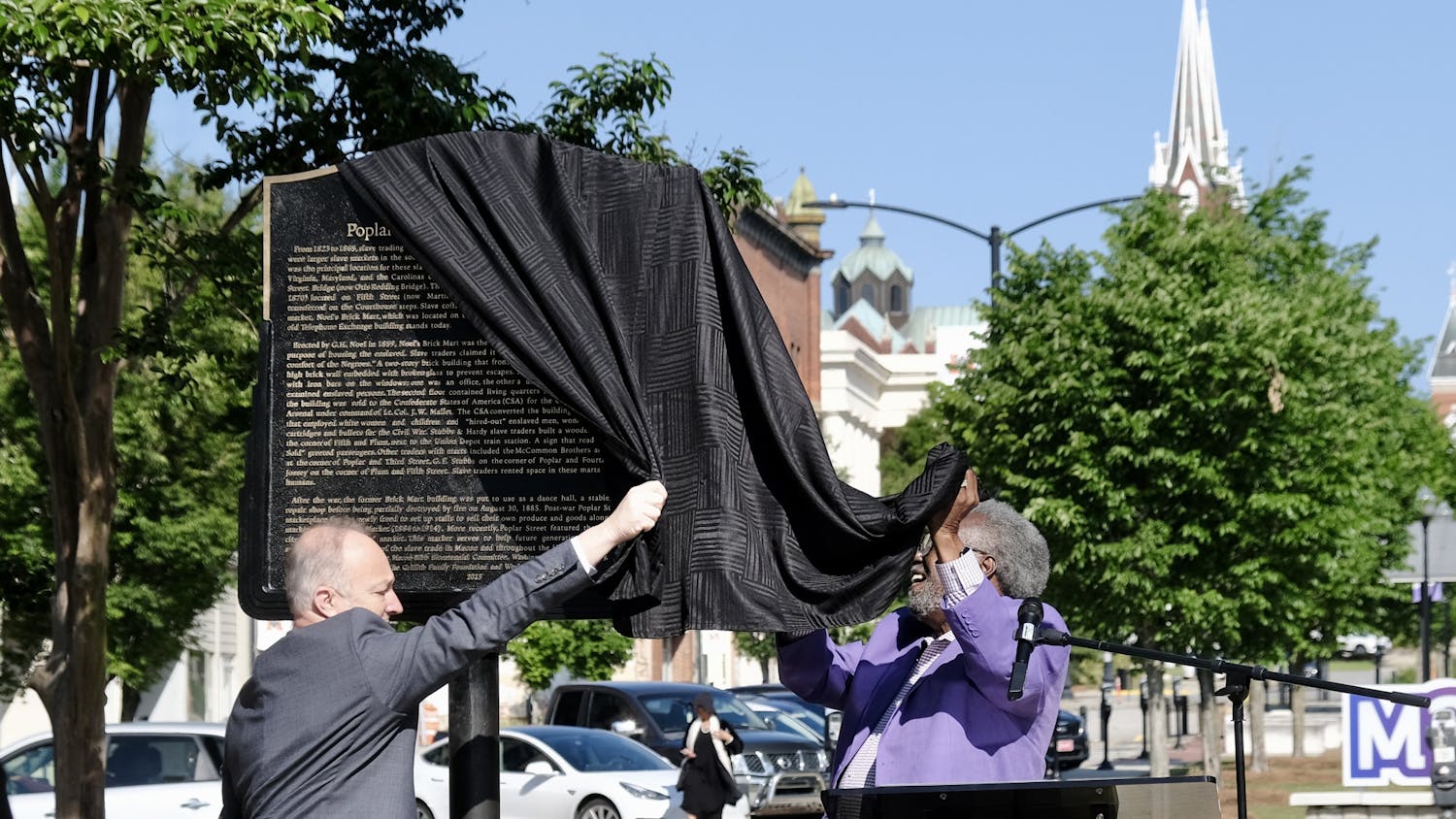“I’ll bike into some Internet service tomorrow afternoon.”
Christie Hutchison’s response to a request to be interviewed embodied the limited access to resources she experiences every day.
Hutchison, a 2015 Mercer University graduate who majored in environmental engineering and minored in sociology, currently serves as a Peace Corps volunteer in the West African country of Mali. She will be helping to improve water conditions, hygiene, and sanitation.
“Right now, I’m working to conduct a needs assessment survey for my village, so that I can best serve them for the next two years,” Hutchison said.
The Peace Corps is a nonprofit organization that sends Americans to foreign countries on service missions. The program was created in 1961 by President John F. Kennedy, with the intent of aiding developing countries by sending young Americans overseas to do service work in a variety of fields.
Though she is currently in the beginning stages of her service, Hutchison has already been thrown into a variety of challenging experiences.
“The nature of my work means living in hygienic conditions that are very different from what we are accustomed to in the states. My body is adjusting,” she said.
The organization recruits people who are willing to adapt to a different country’s conditions and culture, remain open-minded to its people, and do whatever it takes to improve the lives of the people they touch.[pullquote speaker="Christie Hutchinson " photo="" align="right" background="on" border="all" shadow="on"]The nature of my work means living in hygienic conditions that are very different from what we are accustomed to in the states. My body is adjusting[/pullquote]
Sometimes it takes a lot of adjusting, Hutchison said.
“Some days, I simply have difficulty completing house chores in a world with no electricity and running water,” she said. “Some days, I struggle with the feeling that I’m in a 'fish bowl' of sorts and have little privacy. Other days still, I feel isolated or wrestle with the thought that my work is making little impact.”
Though Hutchison struggles with the occasional feelings of hopelessness, she said that joining the Peace Corps is the best decision she has ever made, largely because of the connections it has brought.
“I’ve learned how to form incredible relationships with people seemingly so different from myself, both amongst my group of fellow volunteers, and with host country nationals,” Hutchison said. “I hope I’ll never again isolate myself and, so to speak, ‘hide behind’ a certain group of individuals simply for sharing my background, beliefs, views, or interests.”
David Davis, Mercer’s director of fellowships and scholarships, helps students learn about the Peace Corps and assists in connecting the student to the regional recruiter.
He said that though volunteers go through a rigorous training prior to being placed, they cannot anticipate all the situations that will occur. Being thrust into a culture, often not fluent in the language or cultural etiquette, brings challenges beyond expectation.
“The Peace Corps places American volunteers in situations where they can improve the daily lives of other people and where they can discover themselves,” Davis said.
Regional recruiter Alex Walker, herself a graduate of the Peace Corps, emphasized that the mission is mainly about cross-cultural exchange and learning to find the beauty in human connection rather than materialism.
Hutchison said that she has certainly felt this sense of discovery and exchange herself.
“Mali is a place where social relationships have much greater value than money or work, a concept that is largely foreign to us in the states. For all that Mali hurts for in terms of monetary wealth, it more than makes up for in richness of family and community bonds,” she said.
Though Hutchison’s village welcomed her — ecstatic that their 5-year request for a Peace Corps volunteer was finally answered — there was hesitation due to her difference in appearance.
“Many of the kids were and are still scared of me because I look so different from any person they’ve ever encountered. I’m told often that my ‘big hair’ is the cause of a lot of this fear,” said Hutchison.
Though Hutchison has formed countless relationships, she spoke about her deepest connection with her in-country supervisor’s wife — an 18-year-old married girl, who works every day in the fields.
She still makes time to see Hutchinson.
“She comes to visit with me every night, after she’s spent all day cooking and working in the fields. She’s taught me to make Malian tea and cook my favorite local dishes,” Hutchison said.
Though the Peace Corps volunteers’ work has the ability to transform a village’s access to water, enable young girls to receive an education, and provide safer sanitary conditions, the personal connections formed between volunteers and natives drive all this progress.
“[Relationships] are what make this entire experience what it is,” she said.
Hutchison said she has come to recognize the incredible beauty in Mali’s sometimes bleak circumstances.
”The complexity of relationships I’ve formed here, the night sky, the colorful Malian wardrobe, the henna that women get before social events, the outstanding hospitality, and the rolling fields of crops in the height of rainy season. These are all the hidden beauties of Mali,” she said.
A look into the Peace Corps: Christie Hutchinson's tale

A gathering in the village that Christie Hutchinson,
a member of the Peace Corps works with.




